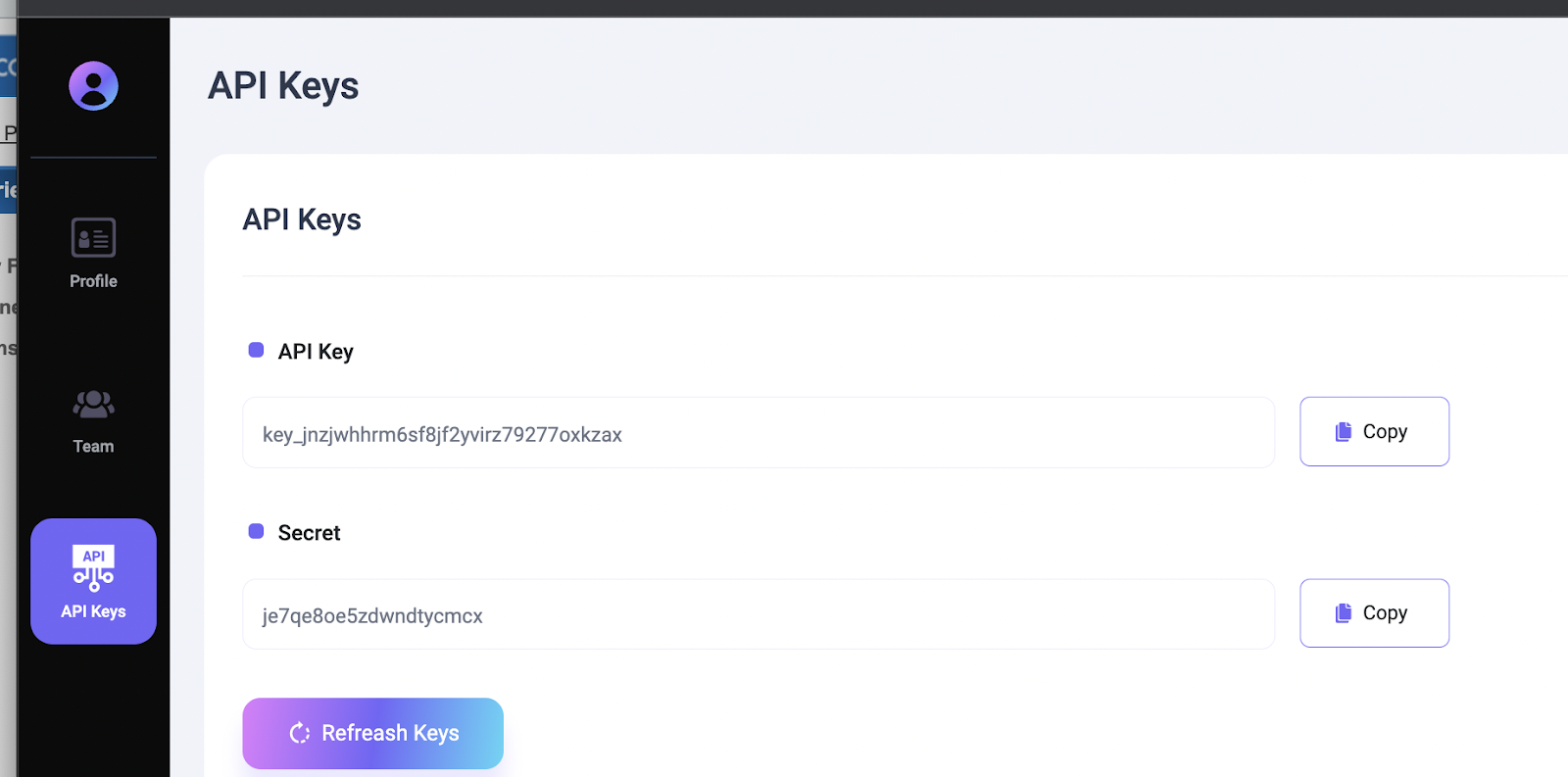1. Getting Started
The LayerNext Python SDK provides a programmatic way to access all the functions inside the LayerNext platform, including uploading annotations, downloading datasets and annotations, and other functions.
1.1. Installation
The SDK is available as a package on PyPI
pip install layernext
1.2. API Keys
To use the SDK, you will need your LayerNext API Key and Secret. Those can be found and copied from the API Keys section in your account's UI.

1.3. Setting up the SDK
Before you start, you will have to create a client instance with permissions to access your account. You will need the API Key and Secret as detailed above, as well as the domain where your data is hosted.
import layernext
url = "https://api.[customer_sub_domain].layernext.ai"
client = layernext.LayerNextClient(api_key, secret, url)
Once created, the API client can use all of the available functions inside this SDK.
1.4. Tracking the Completion of Operations
Some of the functions in the SDK trigger operations (or jobs) in the Data Lake that run in the background and may take several minutes to finish. If your program needs to wait for these operations to complete, you can use the 'wait_for_job_complete' function. This function will cause your program to pause until the job has been fully executed.
client.wait_for_job_complete(job_id)
Parameters
| Parameter | Data type | Default | Description |
|---|---|---|---|
job_id | string | - | Job Id corresponding to the operation invoked in a previous SDK function (eg: Project creation) |
Returns
Status of the job (complete or fail) once the job is done
{
'is_success': True/False,
'job_status': 'COMPLETED/FAILED',
}
Example usage
upload_res = client.upload_files_to_collection(‘/home/user/images', “image”, “my_collection”, {})
upload_job_id = upload_res['job_id']
#Waiting for upload processing to complete
client.wait_for_job_complete(upload_job_id)